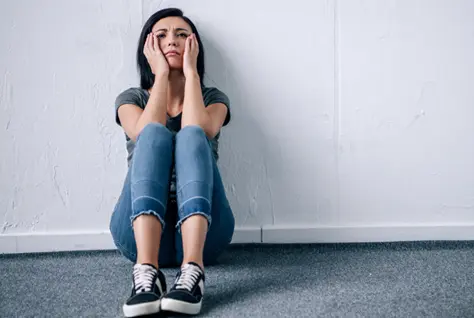Depression and Anxiety Symptoms are often intertwined, as depression and anxiety are distinct conditions that frequently occur simultaneously. According to the National Institute of Mental Health, major depression frequently accompanies panic disorder and other anxiety disorders. While both conditions have unique clinical features, they share overlapping symptoms such as irritability, impaired sleep, and decreased concentration.
Understanding Anxiety and Depression
Anxiety is a natural psychological response to stress, serving as an alert to potential dangers. However, anxiety disorders are characterized by excessive fear that disrupts daily functioning. Individuals with anxiety disorders may avoid fear-inducing situations, leading to challenges in work, school, or social settings. Symptoms of anxiety may include:
- Excessive worry or fear
- Restlessness or feeling on edge
- Fatigue
- Difficulty concentrating
- Irritability
- Sleep disturbances
When these symptoms are severe, prolonged, or disproportionate to the situation, they may indicate an anxiety disorder.
On the other hand, depression is a common mood disorder marked by persistent sadness and a lack of interest in activities once enjoyed. It can significantly impair emotional, physical, and social functioning. While occasional feelings of sadness are normal, clinical depression involves symptoms that are more intense and long-lasting. Symptoms of depression may include:
- Persistent sad or anxious mood
- Feelings of hopelessness or pessimism
- Irritability
- Loss of interest in hobbies and activities
- Decreased energy or fatigue
- Difficulty concentrating or making decisions
- Appetite or weight changes
- Thoughts of death or suicide
If you or someone you know is experiencing these symptoms, it is crucial to seek help from a healthcare provider.
Effective Strategies for Managing Anxiety and Depression
In addition to professional treatment, incorporating certain strategies into daily life can help alleviate symptoms of anxiety and depression –
- Acknowledge Your Feelings: Allow yourself to experience your emotions without judgment. Recognize that anxiety and depression are medical conditions, not personal failures. Understanding this can reduce self-blame and encourage seeking help.
- Engage in Manageable Tasks: Completing small tasks can provide a sense of accomplishment and control. Activities like organizing a drawer or watering plants can boost confidence and counter feelings of helplessness.
- Establish a Daily Routine: Creating a structured daily schedule can provide stability and predictability, which are beneficial for mental health. Incorporate time for self-care, work, and relaxation to maintain balance.
- Maintain a Nutritious Diet: Eating a balanced diet rich in fruits, vegetables, lean proteins, and whole grains supports overall well-being. Avoid excessive consumption of comfort foods high in sugar and refined carbohydrates, as they can negatively impact mood.
- Practice Relaxation Techniques: Incorporate practices such as yoga, meditation, and deep breathing exercises into your routine. These techniques can reduce stress, enhance mood, and promote relaxation.
- Seek Social Support: Connecting with friends, family, or support groups can provide emotional support and reduce feelings of isolation. Sharing your experiences with others can be therapeutic and foster a sense of belonging.
- Limit Exposure to Stressors: Identify and minimize exposure to sources of stress when possible. This may include setting boundaries, reducing time spent on social media, or delegating tasks to others.
- Engage in Physical Activity: Regular exercise can improve mood and reduce symptoms of anxiety and depression. Aim for at least 30 minutes of moderate activity most days of the week.
- Prioritize Sleep: Ensure you get adequate rest each night. Establish a consistent sleep schedule and create a relaxing bedtime routine to improve sleep quality.
- Consult a Healthcare Professional: If symptoms persist or worsen, seek guidance from a mental health professional. They can provide appropriate treatment options, including therapy and medication, tailored to your needs.
Stay motivated by setting new personal goals and engaging in meaningful activities, such as volunteering or charity work. Remember, the symptoms of anxiety and depression are manageable and treatable. If you are experiencing these symptoms for more than two weeks, if they keep coming back, or if they are disrupting your daily life, it is important to seek professional help. Getting the right support at the right time can make a significant difference in your journey to recovery.

